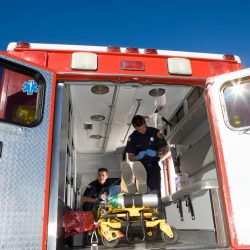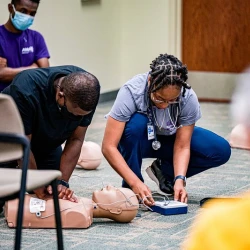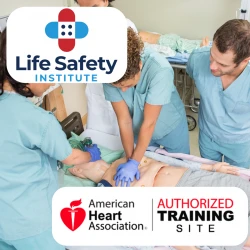In a groundbreaking effort to combat the opioid crisis, the New Hampshire Department of Health and Human Services (DHHS) recently announced plans to distribute more than 700 "NaloxBoxes" across all ten counties in the state. This initiative, carried out in partnership with the state’s substance misuse prevention agencies, is the first large-scale, coordinated effort of its kind in the United States. The NaloxBoxes, hard acrylic boxes mounted to exterior walls, offer 24/7 access to naloxone—a life-saving medication designed to reverse opioid overdoses. The effort aims not just to save lives but also to destigmatize the use of naloxone.
What is a NaloxBox?
A NaloxBox is a hard acrylic box that is mounted on an exterior wall to provide constant, public access to naloxone. Naloxone is a medication approved by the FDA to reverse the effects of an opioid overdose. When administered, it can block the toxic effects of opioids and can be the difference between life and death in overdose situations. The NaloxBox is similar in function to automated external defibrillators (AEDs) that are often found in public spaces, as they both offer immediate emergency medical support.
Why New Hampshire?
Governor Chris Sununu emphasized the importance of this new measure by stating, "This is yet another tool in New Hampshire's efforts to build a robust treatment and recovery system." While prevention remains the top goal, the governor acknowledged that having such a resource at hand can be vital in saving lives during opioid overdoses.
The Medical Perspective
DHHS Chief Medical Officer Jonathan Ballard strongly supported the initiative by underscoring the efficacy of naloxone. "The data is clear – administering naloxone at the first sign of an overdose can save lives,” he said. During a medical emergency where every minute counts, public access to a life-saving medication can significantly reduce fatalities. The NaloxBox project thereby stands as a crucial step toward minimizing the number of lives lost to substance use disorders.
Partnering for a Cause
To ensure that the initiative is effective, the DHHS will collaborate with New Hampshire's 13 Regional Public Health Networks, the New Hampshire Harm Reduction Coalition, and Recovery Friendly Workplace locations to distribute the units. These community partners will be tasked with monitoring the NaloxBox locations regularly and will be responsible for requesting naloxone refills after a unit is accessed.
Who Can Request a NaloxBox?
The initiative is open to any business or community entity willing to install a NaloxBox in a publicly accessible and visible area. The placement of NaloxBoxes alongside other medical emergency devices like AEDs is believed to help reduce the stigma often associated with opioid overdose.
Access for Individual Users
The state has also considered the needs of first responders, families, caregivers, and other individuals who may require naloxone for personal use. They are encouraged to contact their local Doorway to gain access to the medication.
Fighting Stigma
One of the more significant aspects of the NaloxBox initiative is the potential to reduce the stigma surrounding opioid overdoses. Stigmatization often poses a barrier to seeking help or utilizing available resources. By placing NaloxBoxes in public locations alongside other emergency medical devices, the state aims to normalize access to naloxone, thereby creating a more supportive and less judgmental environment.
Conclusion
The opioid crisis continues to claim lives, rip families apart, and strain community resources. While efforts have been made to curb this epidemic, the New Hampshire DHHS’s NaloxBox initiative represents a monumental leap. It not only puts a powerful tool in the fight against opioid abuse into public hands but also works to eliminate the stigma associated with it. Through collaboration with various stakeholders, the program aims to ensure that more people have access to life-saving medication in those crucial moments when every second counts. Whether this initiative becomes a model for other states to follow remains to be seen, but for now, New Hampshire is leading the way in this critical aspect of public health.
References
- New Hampshire Department of Health and Human Services: Press Release




